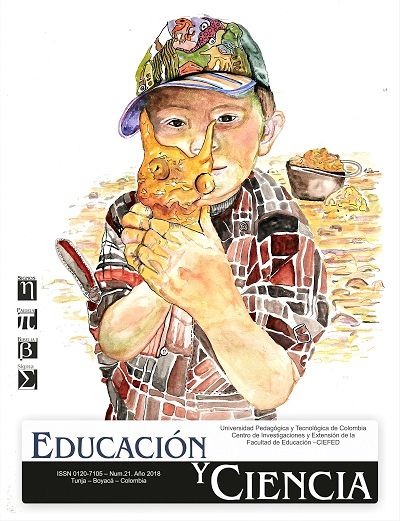Using the conceptual map as a teaching strategy to improve reading comprehension

Abstract
This article aims to describe the educational context of reading comprehension of students in 3rd and 4th grade of the educational institution “Sergio Camargo” (Miraflores, Colombia). t is intended to demonstrate the effect between the use of conceptual maps and the improvement in the reading comprehension by means of the qualitative methodology, with a critical social approach and a design based on the research-action, it can be found that the first pedagogical character that stimulates students to emulate ideas and forms of reading comprehension, is the teacher, giving examples and organizing the exercises, in such a way that if this principal agent does not find adequate strategies to improve the process of reading comprehension and he does it in a monotonous way, implicitly makes reading and reading comprehension a duty and an obligation for children. Reading in this way generates a decrease in self-interest on the students, also making it difficult for learners the chance for them to capture their own ideas. In this sense, the use of concept maps as a strategy influences reading comprehension and helps improve academic performance in a positive way, predicting the success of students.
Keywords
conceptual map, didactic strategy, reading comprehension, meaningful learning.
References
Ausibel, D. (1963). Teoría del aprendizaje significativo.
Bonilla, E. & Rodríguez, P. (1997). Más allá del dilema de los métodos: las
investigaciones sociales. Bogotá. Grupo editorial Norma.
Cañizalez Mesa, N. E., & Benavides Rozo, F. A. (2018). La didáctica como
herramienta de la reflexión docente. Educación Y Territorio, 6(11), 105 - 145.
Recuperado a partir de https://jdc.edu.co/revistas/index.php/reyte/article/
view/48
Fals Borda, O. (2004). La Investigación Acción Participativa.
Kemmis, E. (1992). Cómo planificar investigación acción.
Mariño Díaz, L., Pulido Cortés, O., & Morales Mora, L. (2016). Actitud
filosófica, infancia y formación de maestros. Praxis & Saber, 7(15), 81-
101. https://doi.org/10.19053/22160159.v7.n15.2016.5724
MEN. (2013). Plan Nacional de Escritura. Bogotá: Ministerio de Educación
Nacional.Morata.
Miller, J. (1962). Teoría del procesamiento de información.
Sandoval, C. (2002). Programa de especialización en teoría, métodos y técnicas
de investigación social, investigación cualitativa. Bogotá. Arfo Editores e
Impresores Ltda.
Ospina Nieto, Y. (2014). Rescatar lo antropológico… una necesidad de la educación.
Praxis & Saber, 5(10), 193 - 218. https://doi.org/10.19053/22160159.3029
Torres, A. (1999). Estrategias y técnicas de investigación cualitativa. Facultad de
ciencias sociales y humanas de UNAD. Santafé de Bogotá. Ediformas Ltda.
Vygotsky, L. (1991). Aportes del enfoque histórico cultural para la enseñanza.